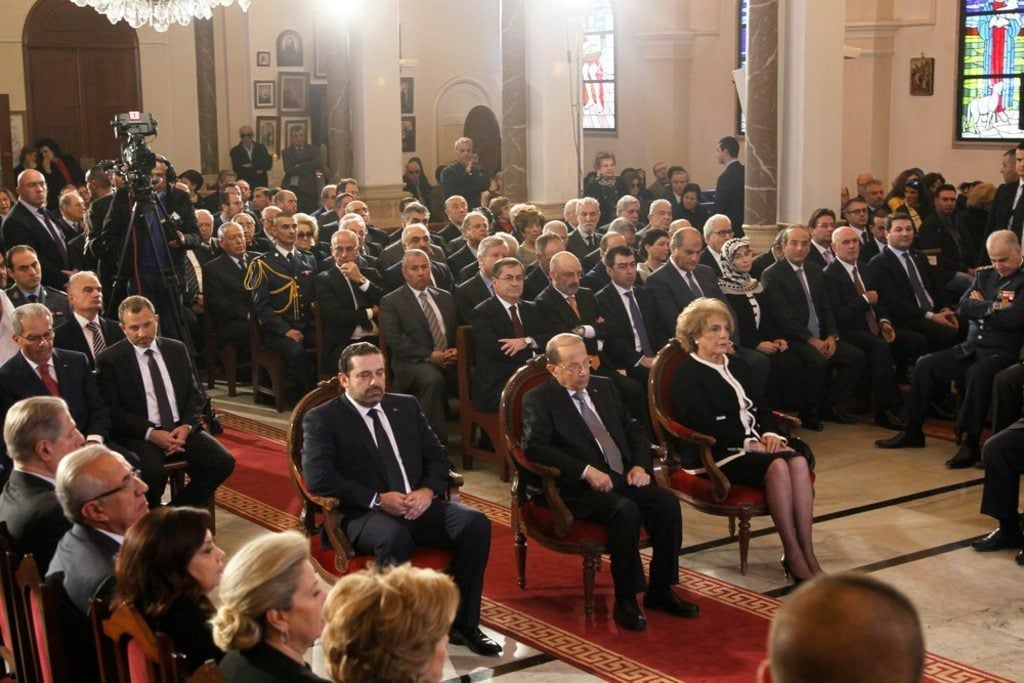
Christians in Lebanon remain a sizeable and politically powerful minority, compared to elsewhere in the Middle East. They make up roughly one third of the country’s population of 4.4 million, and Lebanese President Michel Aoun is the only Christian head of state in the region.
In some areas, integration of Christians and Muslims has increased in recent years, and the younger generation has begun to forget the distrust left over from Lebanon’s civil war, which ended in 1990. Elsewhere, however, religious groups remain segregated and suspicious of each other. Some sectors of Lebanese Christian society feel threatened by a growing Muslim population, particularly following an influx of more than 1.5 million refugees from neighbouring Syria, most of whom are Sunni Muslims.
No accurate demographic data exists for the various religious sects in Lebanon, as the country has not held an official census since 1932. At that time, Christians made up a little more than half of the population, although some analysts have suggested that this figure was inflated as a result of the methodology used to decide which residents would be counted.
More recent estimates suggest that various Christian denominations make up about 34 per cent of the population, with Maronite Christians, affiliated with the Roman Catholic Church, being the largest and most politically powerful. The Greek Orthodox make up the next largest Christian denomination, and there are smaller numbers of other sects, including Armenian Orthodox, Greek Catholic, Armenian Catholic, Syriac Orthodox, Syriac Catholic and Protestant. The issue of a census is politically charged, as Lebanon apportions key leadership positions based on religion, and a change in the official numbers could drive calls for a change in that formula.
According to Lebanon’s constitution, which divides political positions based on sect in a long-standing power-sharing agreement, the president must be a Maronite Christian, whereas the prime minister must be a Sunni Muslim and the speaker of the house a Shia Muslim.
Before the civil war, which lasted from 1975 to 1990, Christians were allotted six leadership positions in the government to every five for Muslims. Under the Taif agreement that brought the war to an end, the formula was adjusted to a 50-50 ratio, and the power of the Maronite president was scaled back.
Recently, the Christian-designated presidential post remained vacant for more than two years amid political infighting. The stalemate ended with the election of Michel Aoun on 31 October 2016.
Aoun is a former Lebanese army general, who led the resistance against the Syrian occupation of Lebanon during the civil war. He was exiled in France from 1990 to 2005, when Syria withdrew from Lebanon.
Paving the way for his election, Aoun reconciled with a rival Maronite Christian politician, Samir Geagea. The two had had a long-standing feud, dating back to the civil war, and were on opposite sides of the political divide over the more recent conflict in Syria. Aoun was aligned with the pro-Assad March 8 coalition and Geagea with the pro-opposition March 14 alliance. In a surprise move, Geagea endorsed Aoun for the presidency in January 2016, after falling out with Sunni Muslim politician Saad al-Hariri, who had endorsed a third Maronite politician, Suleiman Franjieh, for the presidential post. Al-Hariri eventually struck a deal with Aoun, under which al-Hariri agreed to endorse Aoun in return for the post of prime minister.
The rapprochement between Aoun and Geagea and eventual selection of Aoun for the presidency led some to hope for greater cohesion in the Lebanese Christian community that could help bolster their political power.
Meanwhile, the war in Syria has shifted alliances between sects outside the political arena as well. In some areas near the Syrian border, where Christian towns have been the target of Islamic State incursions, Christians have teamed up with the Iran-backed Shiite group Hezbollah to form protection squads.
In areas of Beirut and Lebanon as a whole, Christians and Muslims live side by side, but other neighbourhoods and villages remain largely segregated. More than two decades after the end of the civil war, East Beirut remains predominantly Christian and West Beirut primarily Muslim.
Many Lebanese Christians have expressed anxiety that their numbers are dwindling and their political power is being eroded, due to the large number of Christians who have moved abroad.
In some quarters, this anxiety has manifested itself in efforts to plan housing projects reserved exclusively for Christians or to prevent Christians from selling their land to Muslims. An NGO called Labora works to find jobs in Lebanon for Maronite Christians to prevent them from emigrating. The influx of primarily Sunni Muslim Syrian refugees has also stoked anxiety among some Christians.
Maronite Patriarch Beshara Rai has called for the refugees to be returned to “safe zones” within Syria. In his Christmas message last year he called them a threat to Lebanon’s national security, although he did not cite religion as the reason.
George Saliba, the Syriac Orthodox bishop of Mount Lebanon and Tripoli, went further, denouncing Muslims as “enemies of Christ” and saying that killing Christians in Iraq was “normal for Muslims, because they have never treated Christians well”.
There has also been a push from certain Christian parties to change Lebanon’s electoral law so that citizens only vote for candidates of their own religion, as opposed to the current system, in which certain positions are reserved for certain denominations, but the candidates are selected by members of all faiths.
Nevertheless, relations between Christians and Muslims in Lebanon are by many measures better than elsewhere in the Middle East.
A 2013 Pew survey of Muslims in countries around the world, for instance, found that whereas 50 per cent of Muslims surveyed in Egypt described Christians as generally hostile toward Muslims, only 27 per cent of Muslims surveyed in Lebanon shared that sentiment. Meanwhile, 35 per cent of Egyptian Muslims surveyed said Muslims were hostile toward Christians, whereas 27 per cent of Lebanese Muslims surveyed agreed.


